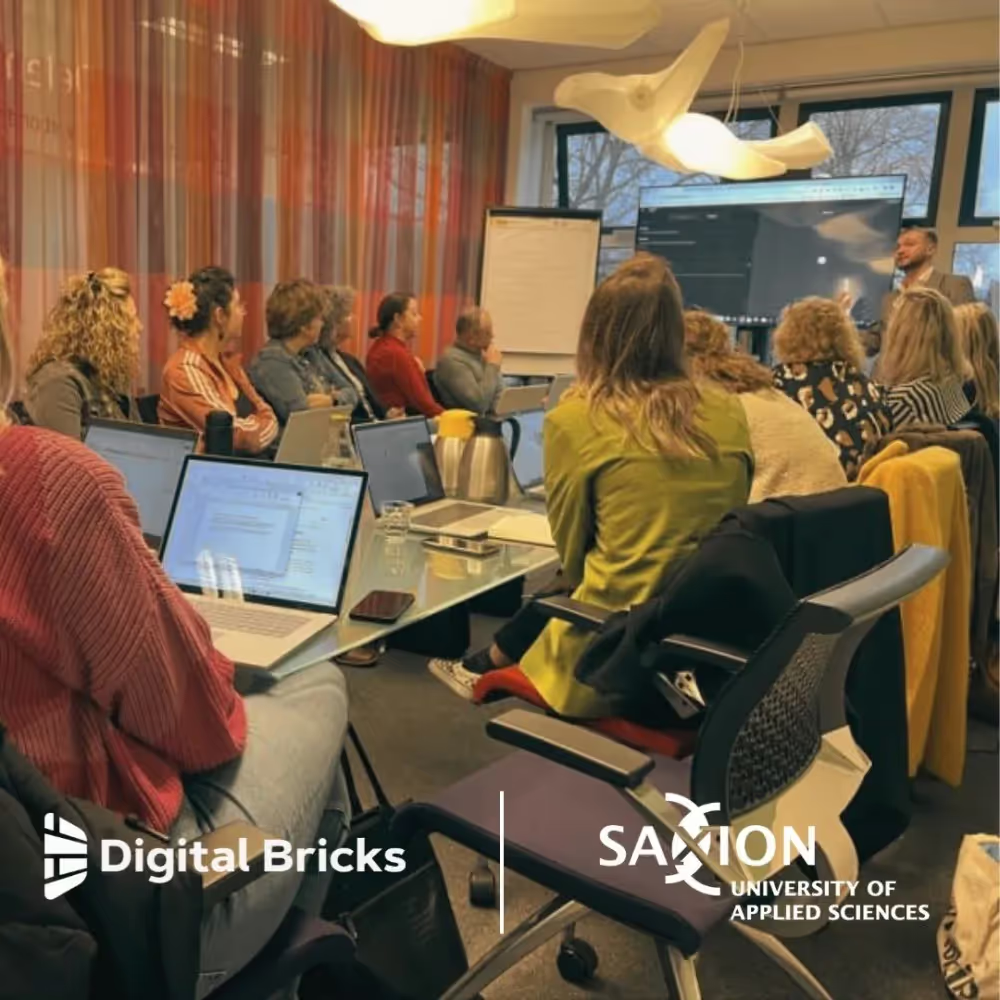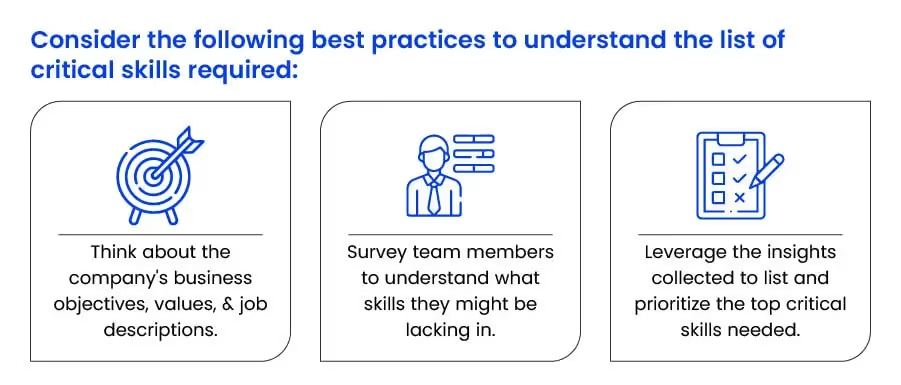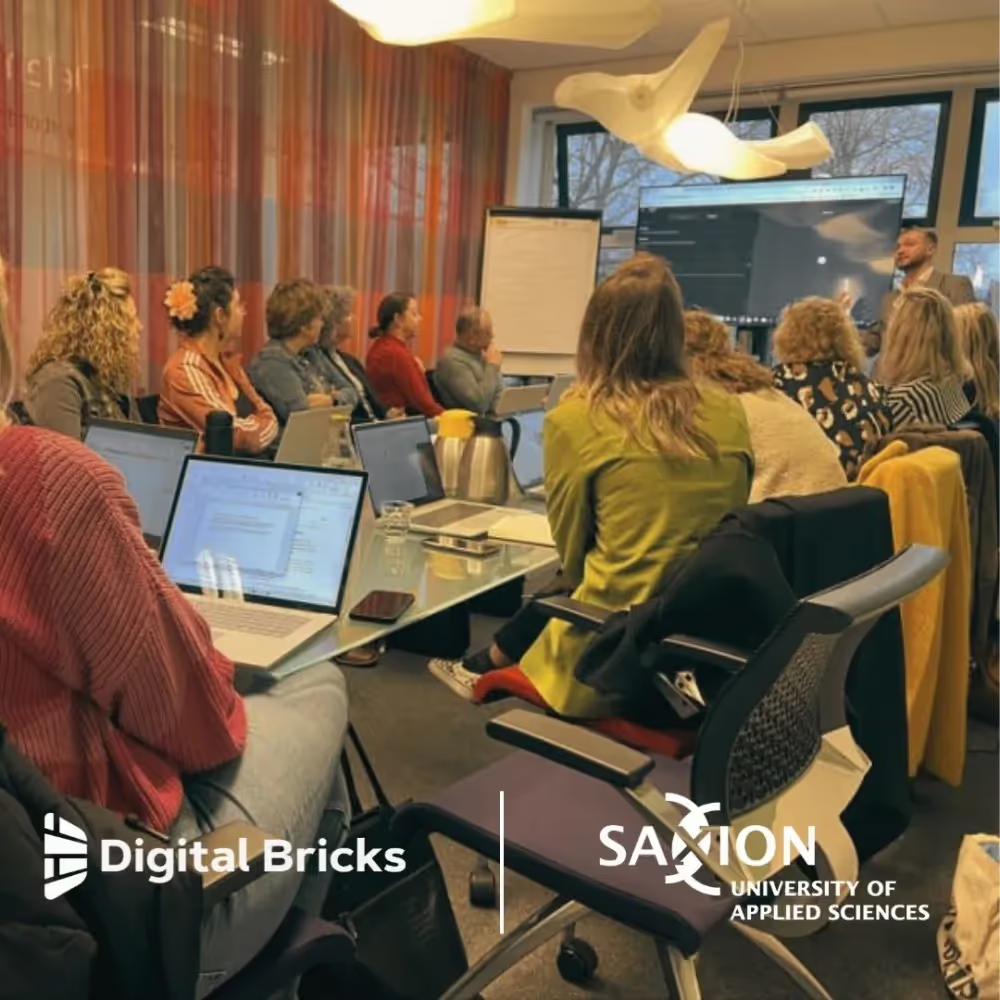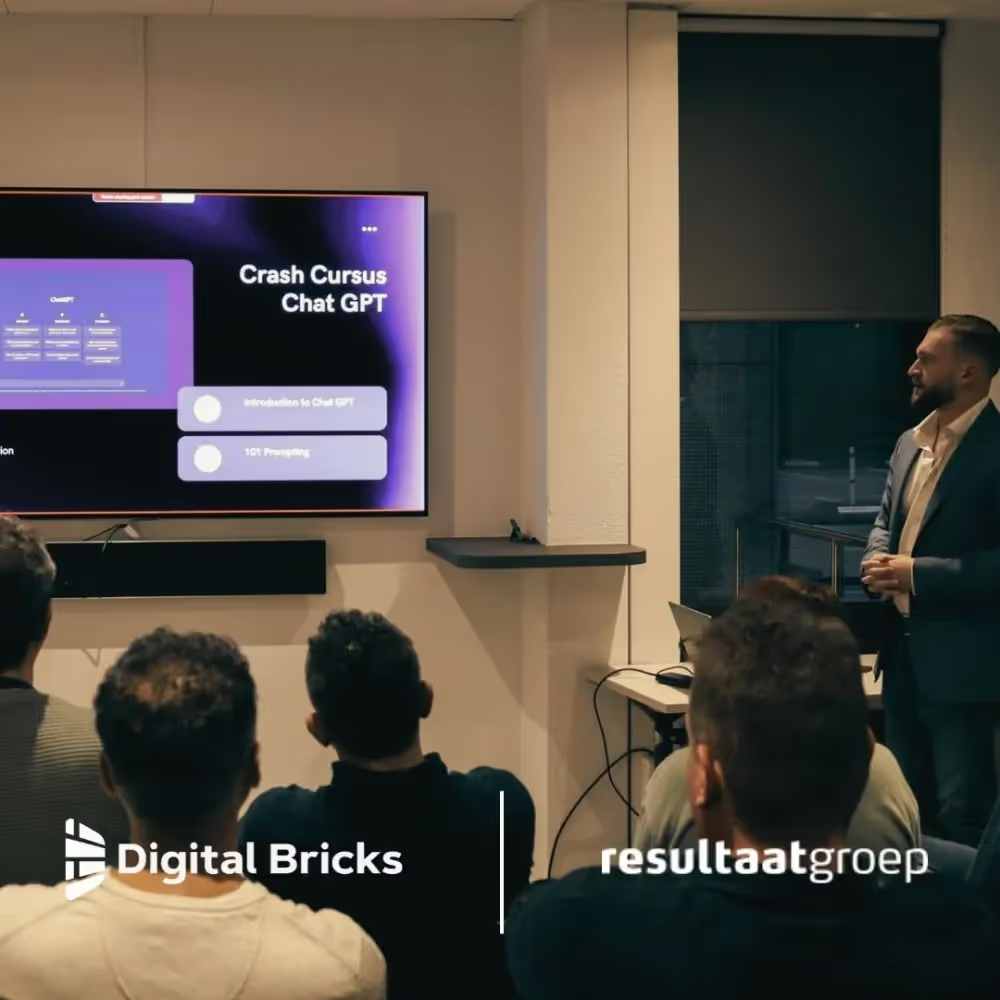
Crafting Personalised Upskilling Journeys for Industry-Specific Teams and Individuals





In today's rapidly evolving business landscape, the inability to upskill workforces has emerged as a critical challenge. According to Accenture research, 51% of organisations are experiencing negative impacts due to worsening IT skills shortages, making it imperative for companies to prioritise employee development. Despite this pressing need, only 5% of organisations offer generative AI training at scale, even though 94% of workers express a desire to learn new skills in this domain. At Digital Bricks, we understand the importance of tailored upskilling journeys and have successfully assisted organisations like Actos Groep in the Netherlands to reinvent their business strategies through targeted training programs.
Creating an effective upskilling journey begins with a deep understanding of the business. This involves a comprehensive analysis of the company's specific industry, its unique applications, sales funnels, day-to-day processes, and the challenges and successes it faces. By thoroughly grasping these elements, we can design a training plan that addresses the precise needs of the organisation and its workforce.
The initial phase involves conducting a thorough needs assessment. This process includes engaging with key stakeholders to identify critical skills gaps and organisational goals, assessing the current skill levels of employees through surveys, interviews, and performance data, and comparing the organization's skills and processes with industry standards to identify areas for improvement.

Once the needs assessment is complete, the next step is to define clear learning objectives. These objectives should align with the organisation's strategic goals and address the identified skills gaps. For example, if a company's sales team struggles with integrating AI into their sales processes, a learning objective might be to equip them with the knowledge and tools to leverage AI for lead generation and customer relationship management.
With the learning objectives in place, we can begin designing the personalised learning path. This involves creating a curriculum that includes relevant courses, workshops, and hands-on projects. The content should be tailored to reflect the specific applications and processes of the industry, offering a mix of online and offline training options to cater to different learning preferences.

The next phase focuses on delivering the training program to employees. Key components include facilitating workshops that encourage active participation and real-world application of skills, pairing employees with mentors who can provide guidance and support throughout their learning journey, and using analytics tools to monitor progress and make necessary adjustments to the training plan.
Upskilling is an ongoing process, and it is essential to continuously evaluate and improve the training program. This involves gathering feedback from participants to understand the effectiveness of the training, analyzing performance metrics to measure the impact of the training on business outcomes, and making data-driven adjustments to the training program to ensure it remains relevant and effective.

To illustrate this process, let's consider a example of a financial services company, FinServe Pro. , looking to upskill its workforce in the application of AI for fraud detection and prevention.
Understanding FinServe Corp involves recognising its industry specifics, such as fraud detection, risk management, and customer service applications. The company faces challenges like increasing fraud incidents and high operational costs, but it also has strengths in strong customer trust and a robust data infrastructure.
The personalized learning path for FinServe Corp begins with a needs assessment that identifies the need for advanced AI skills to enhance fraud detection capabilities. The learning objectives are then defined, such as equipping the fraud detection team with advanced AI skills and enhancing the customer service team's ability to use AI for personalised client interactions.
The learning path is designed with a curriculum that includes courses on AI fundamentals, machine learning for fraud detection specific to the AI tools being implemented at FinServe, and AI-driven customer service, tailored with relevant case studies and examples. The training program is implemented through interactive workshops, mentorship programs, and progress tracking.
Finally, continuous evaluation and improvement involve gathering feedback, measuring performance metrics like the reduction in fraud incidents and improvements in customer satisfaction, and updating the curriculum based on feedback and emerging AI trends in the financial sector.
By following this structured approach, Digital Bricks can help organisations create personalised upskilling journeys that not only address immediate skills gaps but also prepare the workforce for future challenges. Whether it's through targeted AI training or comprehensive industry-specific programs, our goal is to empower businesses to thrive in an increasingly digital world, if you are interested in our services, contact us today.